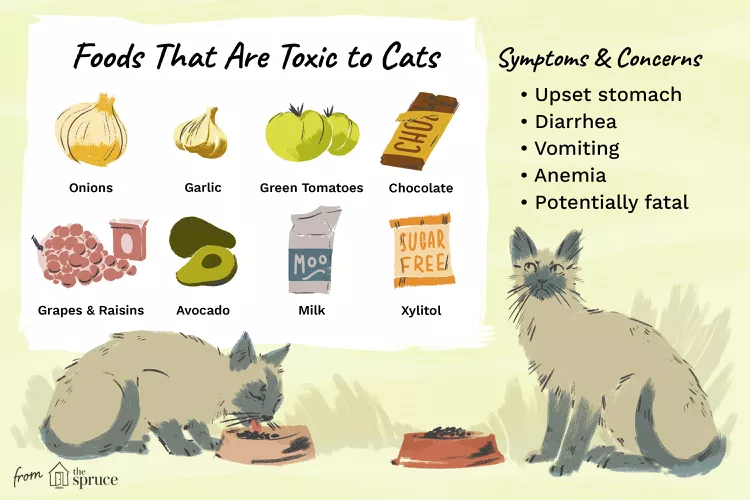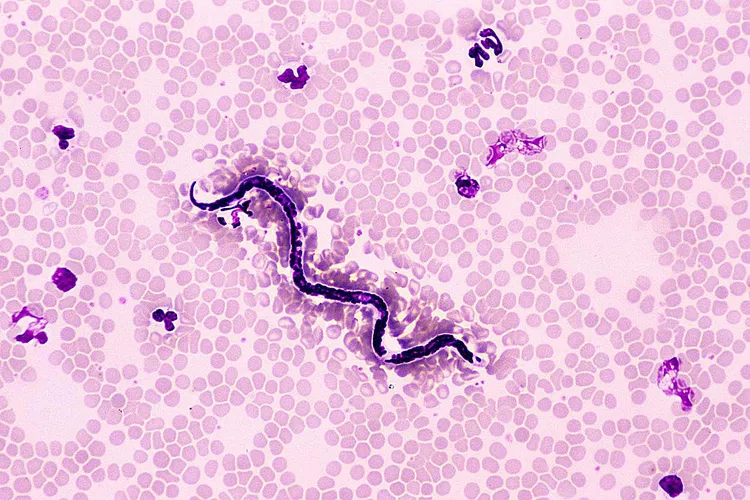
Rosemary, a woody herb, has aromatic leaves that are often used in cooking. It also has many reported health benefits, ranging from antibacterial properties to antioxidant powers, to possible anti-cancer benefits. All of this may lead you to wonder if rosemary is good for your dog too, and whether or not it is safe. Rosemary is not considered toxic to dogs, but there are some caveats.
Before giving any human foods or medications to your dog, it is always important to find out whether or not it is safe. As it turns out, many foods and medications that are perfectly fine for us can be toxic to our pets, so it is never a good idea to assume something is okay for dogs without verifying. When it comes to rosemary, it's considered non-toxic to dogs, although there are some caveats to that.
The fresh leaves are very dense plant matter with a lot of fiber, so if your dog were to consume a very large amount of fresh rosemary leaves, it could cause some tummy upset like vomiting and/or diarrhea. Most cases will resolve quickly, but you should see your vet anytime vomiting or diarrhea lasts more than 24 hours and/or if your pup seems lethargic or is not eating. Other concentrated forms of rosemary can be more toxic depending on their preparation and use.
Rosemary essential oils can be toxic due to the presence of camphor and other ingredients that may be harmful to your pup. It also depends on the route of administration as some of these ingredients may be toxic if swallowed, while others may be irritating to the skin if applied topically. Some underlying conditions may make your pup more at risk for complications.
Dogs with seizure conditions like epilepsy should probably avoid rosemary altogether. This comes from evidence in human medicine that humans with existing seizure disorders can have seizures from rosemary essential oils. While there has not been a direct study on dogs to see if the same holds true, it is better to play it safe and avoid rosemary in dogs with pre-existing seizure conditions. And if in doubt, it is always best to consult your vet before using any new products for your pup.
If you scan the internet, you will find claims that rosemary can help with a huge range of ailments and provide benefits including boosting immunity, reducing stress, and fighting cancer. It is also believed to be a potent antioxidant and has antimicrobial properties. While not all of these claims have been thoroughly researched, there are some well-documented benefits to rosemary.
Rosemary contains chemical compounds such as diterpenes, carnosol, and carnosic acid. These compounds are thought to have the ability to scavenge free radicals that cause damage to different cells in the body. Antioxidants can neutralize free radicals, protecting the cells within the body from damage. It is unknown exactly what dose would be necessary in dogs for this to have a potent effect, but giving a small amount to your pup in the form of fresh or dried rosemary leaves is generally considered safe and may provide some antioxidant benefits.
Rosemary is also thought to have potent antimicrobial properties against some bacteria and fungi. In fact, sometimes it is used as a preservative in human food due to its antimicrobial properties. In dogs, the evidence has not been as convincing as it only shows mild effects against the common microorganisms that cause infections in dogs. It may be a good supplementary treatment to use in addition to medication provided by your vet but likely is not effective enough to cure an infection on its own.
When rosemary leaf extracts are applied to dog cancer cells in laboratory settings, they show an ability to kill cancer cells and slow the growth of tumors. Whether or not this same scenario plays out inside the body has not been proven yet, but it seems to be a promising area of study.
If you want to give rosemary a try with your pup, always start with a very small amount to see how your dog responds (and check with your vet before giving the plant to your pup). Since the safest way to try it out is with fresh or dried leaves, try putting a small sprinkle of leaves into your dog’s food for a few days and monitor closely for any changes.
If you are considering using rosemary topically to treat a skin condition, consult with a veterinarian who has training in alternative or holistic medicines to ensure you use products that are safe for your dog. If you are concerned that your pup ingested too much rosemary or ate a product that was intended for use on the skin, contact your vet right away and consider calling a pet poison control hotline, such as the ASPCA Poison Control Center, to find out what you need to do.
Rosemary may have some helpful benefits to pups. While there is still much to learn about the most effective and safe ways to use it, a little bit of fresh or dried rosemary can be a good way to get started. Your pup may even enjoy the added perk of its delicious smell and taste.

The First 30 Days With Your New Kitten
The first month is full of changes and excitement for a kitten in a new home. Find out what to expect and what you can do for your new feline friend.
How Old Is Your Cat in Human Years?
As a cat ages, there are often behavioral and physical changes too. Find out how to convert cat years to human years and what to expect at each stage.
What to Buy for Your New Cat: A List of Essentials
Before you bring your new cat or kitten home, there are a number of things to collect or buy so your cat will feel welcomed like a family member.
Human Foods That Are Poisonous to Cats
Many human foods are toxic to cats. Avoid feeding cats table scraps. Instead, feed a nutritious cat food created for their specific nutritional needs.
Cat Food Ingredients to Avoid
When checking the nutrition content of cat food, look for ingredients that are not healthy or show it is of poor quality. Avoid these 3 ingredients.
Should You Feed Your Cat a Raw Diet?
Learn the pros and cons of raw diets for cats, and find out how to choose a raw food diet for your own cat.
Can Cats Eat Corn? Here's What A Vet Thinks
Corn is a common ingredient in cat food and can be a safe treat for cats when fed in moderation. Find out more about how to safely feed corn to your cat.
10 Obscure, Little-known Canine Facts in Honor of National Dog Day
With National Dog Day upon us, it's time to celebrate everything about our favorite pets—even the weirder stuff. Here are 10 obscure facts about dogs you probably didn't know.
The Different Types of Pet-Friendly Workplaces
Discover the different types of pet-friendly workplaces and the benefits they offer employees. Learn how to create a pet-friendly workplace and the best practices for pet owners.
Exploring the Different Types of Pet-Friendly Beaches
Are you looking for pet-friendly beaches? Learn about the different types of pet-friendly beaches, their locations, and tips for visiting them with your pet.
Why Is My Dog Lethargic?
Lethargy can be a sign that something is wrong with your dog. Find out what may be causing this lack of energy and what you should do about it.
Medications to Prevent Heartworm Disease for Dogs
Heartworm disease is a serious risk for all dogs exposed to mosquitos. Find out about the products used to prevent Heartworm disease in dogs.
Can My Dog Eat Tomatoes?
You'll want to keep Fido out of your garden since the tomato plant is toxic, but you can safely offer him ripe tomatoes as a nutrient-packed treat.
15 Best American Cat Breeds
Several cat breeds, including the American shorthair and Bengal, have their origins in the United States. Learn more about these American cat breeds.
Why Do Cats Slap Each Other?
Cats can have some quirky behaviors—one of them being slapping each other. Why do they do this and what can you do to stop it?
Skye Terrier: Dog Breed Characteristics & Care
Learn all about the Skye Terrier, an elegant breed known for its friendly and even-tempered personality with classic terrier traits.
Sloughi: Dog Breed Characteristics & Care
Learn all about the Sloughi, an ancient dog breed known for its impressive running ability, slim stature, and affection toward its family.
English Setter: Dog Breed Characteristics & Care
Learn about the English setter, an excellent hunting breed for pointing and retrieving game. It's also a popular and affectionate companion dog.
Why Dogs Bury Bones and Other Objects
If you give a dog a bone, he might bury it. Why is that? Learn about this burying behavior in dogs and what it means for your pet.
Reasons Why Dogs Run Away and How to Stop It
Dogs can escape, especially if they’re bored and not properly contained. Here are some techniques for stopping your dog from running away.